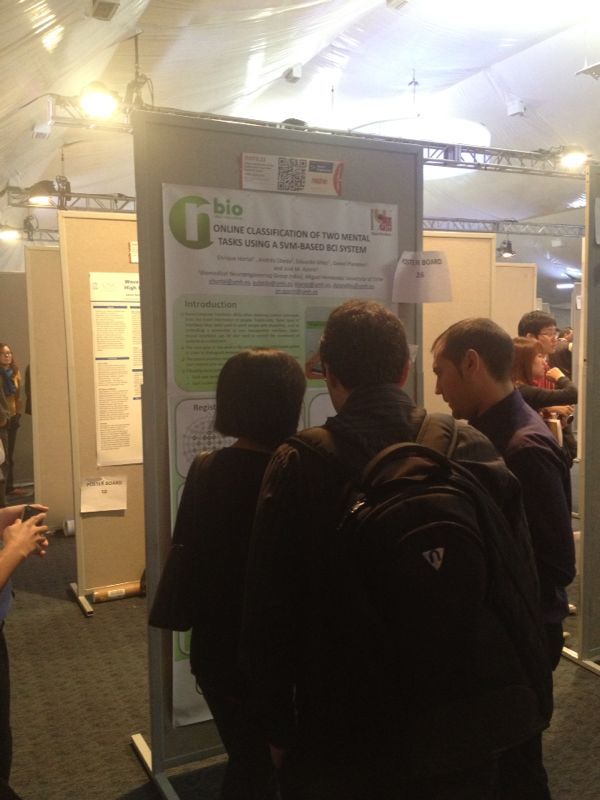Journal collaborations
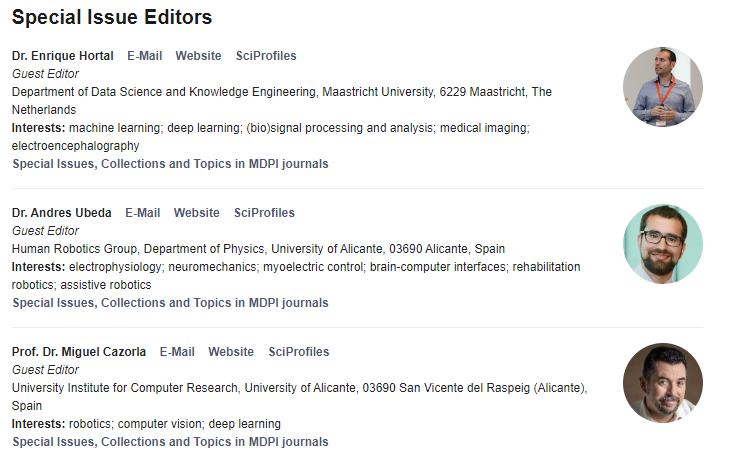
MDPI – Special Issue on AI for Biomedical Sensing and Imaging 2022
Together with my colleagues from the University of Alicante, Spain, Dr Andres Ubeda and Prof. Dr Miguel Cazorla, I am acting as guest editor with MDPI to launch a Special Issue for the open-access journal “Sensors”. This Special Issue addresses innovative developments related to the application of artificial intelligence in the field of biomedicine, particularly in 1) bio-signals processing and analysis as well as 2) medical imaging. Visit the following link for further information: https://www.mdpi.com/journal/sensors/special_issues/AI_BSI
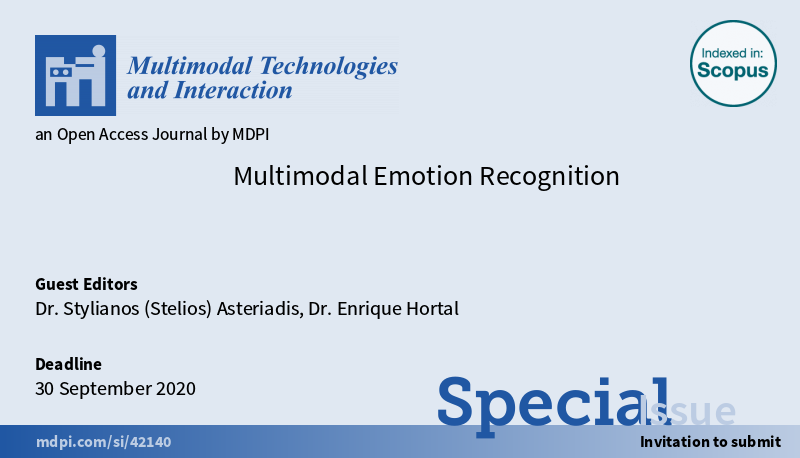
MDPI – Special Issue on Multimodal Emotion Recognition 2020
Together with Dr Stelios Asteriadis I established a collaboration with MDPI to launch a Special Issue for the open-access journal “Multimodal Technologies and Interaction”. This Special Issue is looking for research contributions in the field of Multimodal Emotion Recognition.
Visit the following link for further information: http://mdpi.com/si/42140
Conference organization

Conference on Computer Intelligence and Games CIG 2018
I am pleased to announce that the University of Maastricht and, in particular, the Department of Data Science and Knowledge Engineering is organizing the next Computational Intelligence and Games (CIG) conference. This event will take place in Maastricht during August 2018.
Visit our website here:
https://project.dke.maastrichtuniversity.nl/cig2018/
And follow us in Twitter!
https://twitter.com/cig2018ieee
Conference on Computer Intelligence and Games CIG 2018
I am pleased to announce that the University of Maastricht and, in particular, the Department of Data Science and Knowledge Engineering is organizing the next Computational Intelligence and Games (CIG) conference. This event will take place in Maastricht during August 2018.
Visit our website here:
https://project.dke.maastrichtuniversity.nl/cig2018/
And follow us in Twitter!
https://twitter.com/cig2018ieee
Special Session in the SMAP 2017 conference
The University of Maastricht and NCSR (Dimokritos) are organizing a Special Session in the SMAP 2017 conference (Semantic Media Adaptation and Personalization) dedicated to multimodal affective analysis for human-machine interfaces and learning environments. The CFP can be found here:
The conference is collocated with the UMAP conference (User modeling, adaptation and personalization).
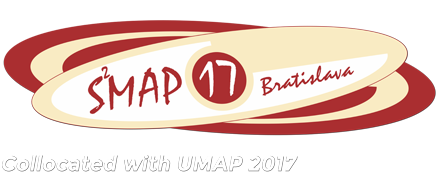
Prizes and Distinctions
Award for the best thesis in bioengineering
In 2018 I was awarded in recognition of my dissertation as the Best thesis in Bioengineering in 2017 at the national level. This fellowship awarded competitively is given annual by the Comité Español de Automática (the Spanish Committee of Automation, CEA) and it is sponsored by Springer. As part of this distinction, my dissertation was published as a book in the Springer Theses Recognizing Outstanding Ph.D. Research in 2018.
You can check the details about the book and purchase it in the link:
https://www.springer.com/gp/book/9783319957043
The announcement of the prize can be checked here:
https://www.ceautomatica.es/blog/2019/03/29/premios-bioingenieria-2017/
Best Bachelor thesis in Telecommunication engineer: specialized in Electronic Systems 2006
My Bachelor thesis was awarded as the best one in the Telecommunication engineer: specialized in Electronic Systems degree in 2016. This prize was sponsored by the “Colegio oficial de ingenieros de telecomunicaciones de la Comunidad Valenciana”.
Best Paper Award – 1st place
The paper “Mental Tasks Selection Method for an SVM-Based BCI System” was award as the Best Paper at the IEEE International Systems Conference (SysCon) 2013, Orlando (USA).
Reference:
- E. Iáñez, A. Úbeda, E. Hortal, J.M. Azorín. “Mental Tasks Selection Method for a SVM-Based BCI System”. Proceedings of the 7th Annual IEEE International Systems Conference (SYSCON 2013), Orlando, United States. Pages: 767-771. ISBN: 978-1-4673-3106-7. 15-18 Abril 2013
Societies and colaborations
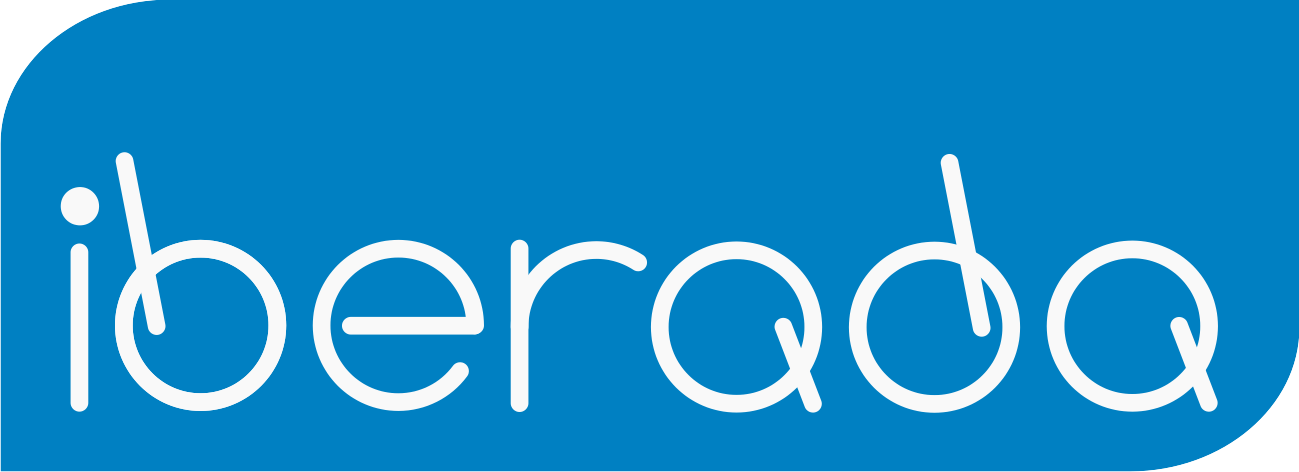
Iberada Research Network
During my work experience as member of the Brain-Machine System Lab at Miguel Hernándeaz University of Elche (September 2012 – December 2015), I had an active colaboration with Iberada, an iberoamerican network of research (Red iberoamericana para el estudio y desarrollo de aplicaciones TIC basadas en interfaces adaptadas a personas con discapadidad)
Associate project
Since January 2014, I was collaborating with this project. The description of the project is:
Cerebral vascular accident (CVA, Stroke) and Spinal cord injury (SCI) are two of the major motor disorders due to damage in the human nervous system leading to physical impairment in Western society. These conditions will in general disrupt sensory and motor pathways that in turn lead to permanent pathological gait, resulting in impaired independent ambulation.
Walking incorrectly creates a stigma and makes patients more susceptible to injury, affecting quality of life. Most advanced robotic treatments to rehabilitate walking function in neurological patients could specifically target the neuronal changes that may contribute to skill acquisition and recovery. Afferent-generated feedback can be applied in these interventions in association to motor planning at brain level.
The first objective of the project is to validate the effectiveness of a novel intervention to promote motor control re-learning in neurological patients by means of an associated use of motor planning at brain level, sensory stimulation at cortical level and afferent feedback provided with a wearable lower extremity exoskeleton.
On the other hand, lower extremity exoskeletons as assistive technologies have been mostly applied in chronic SCI patients as temporary alternative to wheelchairs. Such systems are still not ready for real everyday use in community settings and to maintain neuromusculoskeletal health below the level of the injury. This situation is due basically to the limited flexibility of mechanical and control structures to manage the interactions with musculoskeletal system and human gait dynamics, respectively.
The second objective of the project is to validate the effectiveness of a novel lower extremity wearable exoskeleton with embodied intelligence and enhanced self-learning characteristics in the assistance to locomotion in complete and incomplete SCI in terms of reduced learning periods, improved adaptation and more versatile and dextrous operation.
Press Media
Video files:
- UMH news (Descubre con la UMH: ¿Podemos controlar dispositivos con la mente?)
- Workshop of Neurorehabilitation during the Summer School 2014 in Elche, Spain
- UMH News – Robotic exoskeleton
-
UMH News – Results of usability testing with patients at the Hospital General Universitario of Alicante
Brain2Motion project: UMH has designed a robotic arm controlled by a brain-machine interface:
- UMH Magazine
- Las Provincias (newspaper)
- Hola (magazine)
- actualidadgadget.com (virtual newspaper)
- BMI Systems Lab (corporative web)
- EFE agency (press agency)
Brain2Motion project: Patients with hemiplegia test a robot to move their affected arm through brain signals:
- Europapress (newspaper)
- Las provincias (newspaper)
- Las provincias (newspaper)
Bachelor degree thesis: Research group of UMH designs a device to measure the weight carry out by the “costaleros” during the processions in Semana Santa – the Holy week before Easter:
- 20 minutos (digitlal newspaper)
- La verdad (newspaper)
Experiments in research centers and hospitals
During my research experience I have performed several experiments using control groups and real patients:
- Hospital Nacional de parapléjicos de Toledo (Biomot project, 2015 November)
- Hospital Nacional de parapléjicos de Toledo (Biomot project, 2015 October)
- Hospital Nacional de parapléjicos de Toledo (Biomot project, 2015 September)
- Hospital Nacional de parapléjicos de Toledo (Biomot project, 2015 May)
- Hospital Nacional de parapléjicos de Toledo (Biomot project, 2015 February)
- Hospital Nacional de parapléjicos de Toledo (Biomot project, 2014 November)
- Miguel Hernández University of Elche (Biomot project, 2015 May)
- Hospital General de Alicante (Brain2Motion project, 2014 October)
Thesis defense
In february 2016 I defended my thesis “Interfaces cerebro-máquina para asistencia y rehabilitación de personas con movilidad reducida” (Brain-machine interfaces for assistance and rehabilitation of peopled with motor disabilities) as part of the Brain-Machine Interface Systems Lab successfully with honors (Cum Laude).
See more details in this link.
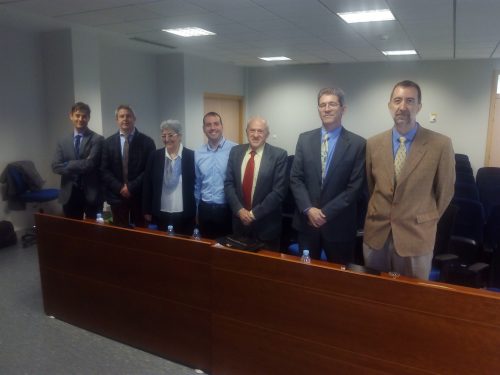
Conferences and project meetings
Key note spech in the (July 2022)
Enrique Hortal gave a key note speech about Affective Computing in the education environment in the COMPDESS2022 (XV Congreso de computación para el desarrollo – Congreso Iberoamericano de Computación Para el Desarrollo) organized by the Universidad Nacional Autónoma de Honduras (UNAH) in Tegucigalpa, Honduras.
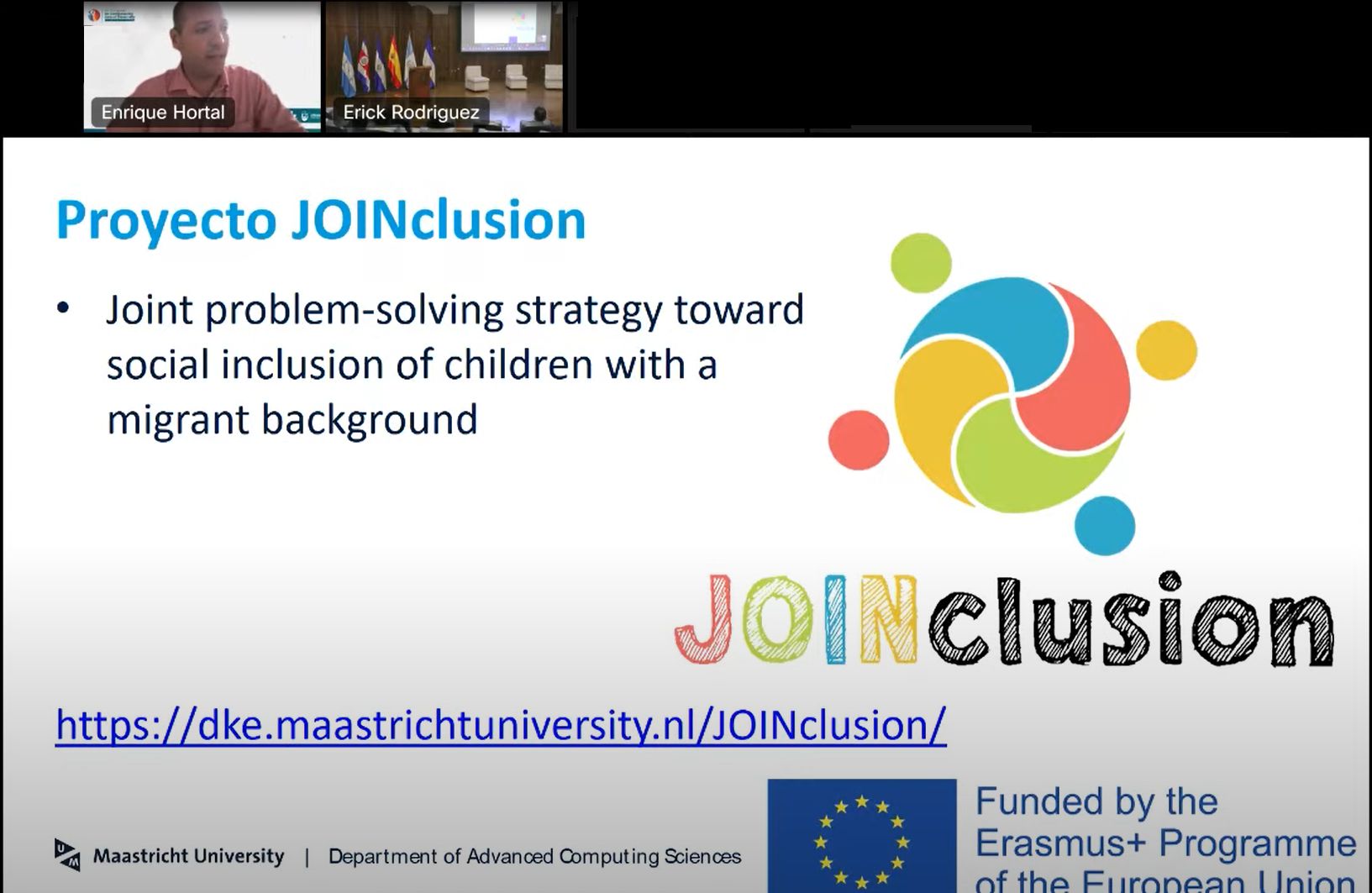
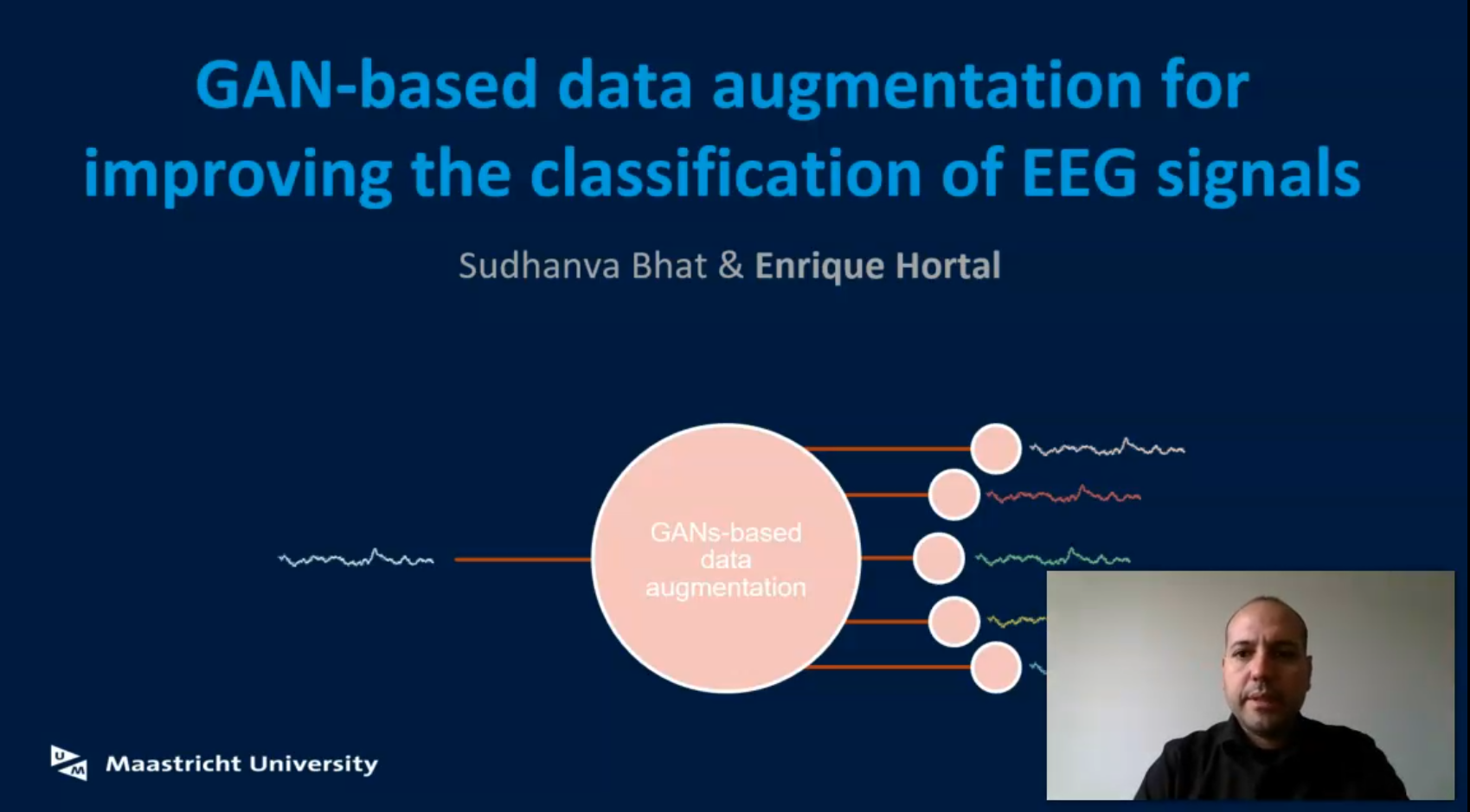
Semantic Media Adaptation and Personalization Conference (SMAP 2017)
Enrique Hortal presented the paper titled “High-performance and Lightweight Real-time Deep Face Emotion Recognition” has been accepted for publication at the SMAP2017 – 12th International Workshop on Semantic and Social Media Adaptation and Personalization. This paper was included as part of the Special Session on Multimodal affective analysis for human-machine interfaces and learning environments.
This paper (J. Schwan, E. Ghaleb, E. Hortal and S. Asteriadis) is the outcome of a student internship and presents a method for facial analysis in the wild based on Convolutional Neural Networks. This system will be applied in learning enviroments in the context of MaTHiSiS project.
PErvasive Technologies Related to Assistive Environments (PETRA 2021)
In the PErvasive Technologies Related to Assistive Environments (PETRA) conference in June-July 2021, Enrique Hortal presented the paper titled “GAN-based data augmentation for improving the classification of EEG signals”. This paper was presented in the workshop session ASSIST (Workshop on AI and Sensor-Supported Integrated care Solutions).
The paper (S. Baht and E. Hortal) presents an AI model able to expand an EEG dataset for emotion recognition based on generative adversarial networks.
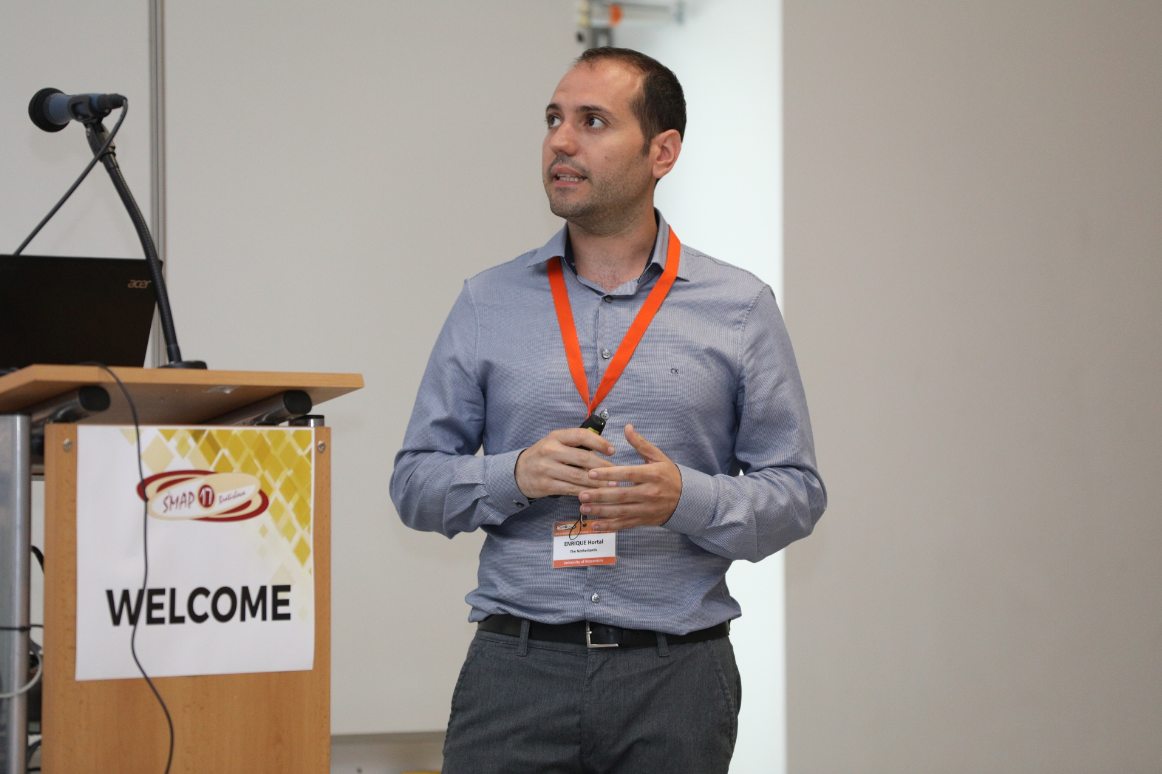
3rd MaTHiSiS Plenary Meeting (June 2017)
UM attended the 3rd plenary meeting to analyse the results of the first pilots of MaTHiSiS project and to discuss about the future developements. This meeting was held in Athens, Greece in June 2017.

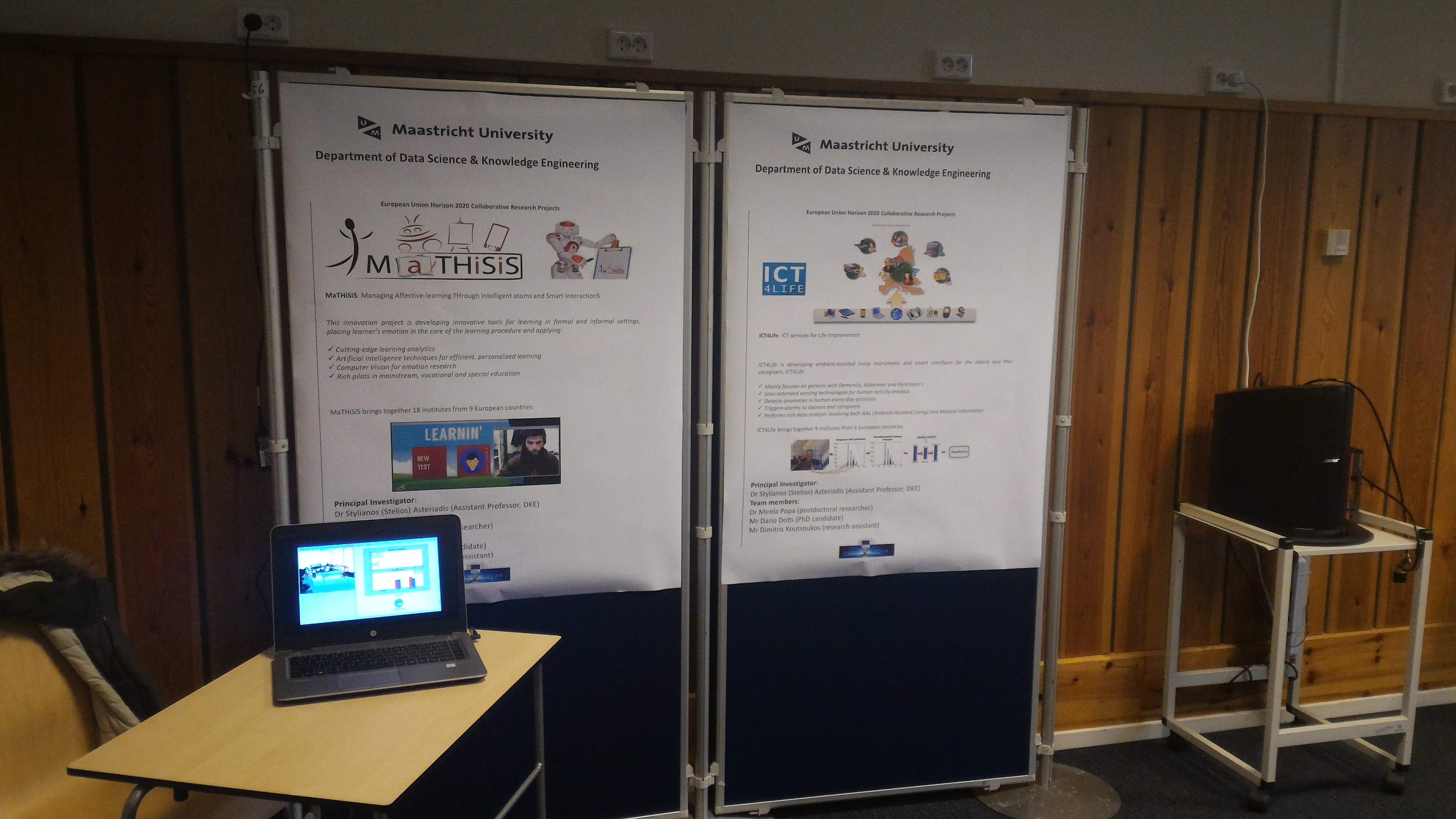
Maastricht University Bachelor´s Open Day (Feb 2017)
The Bachelor´s Open Day in Maastricht university is a dissemination event to inform prospective students and their parents and guardians about the bachelor’s programmes in Maastricht University. During this event, different research groups belonging to the University show their developments and research projects. The members of RAI group presented MaTHiSiS project with a poster and an oral presentation. Moreover, a live demo using one of the robots used in MaTHiSiS platform (TurtleBot) was performed to show some of its capabilities.
1st MaTHiSiS Review Meeting (February 2017)
On 10th February 2017, I attend the 1st review meeting with the European Commission. This meeting was held in the EuroForum Building, in Luxembourg.
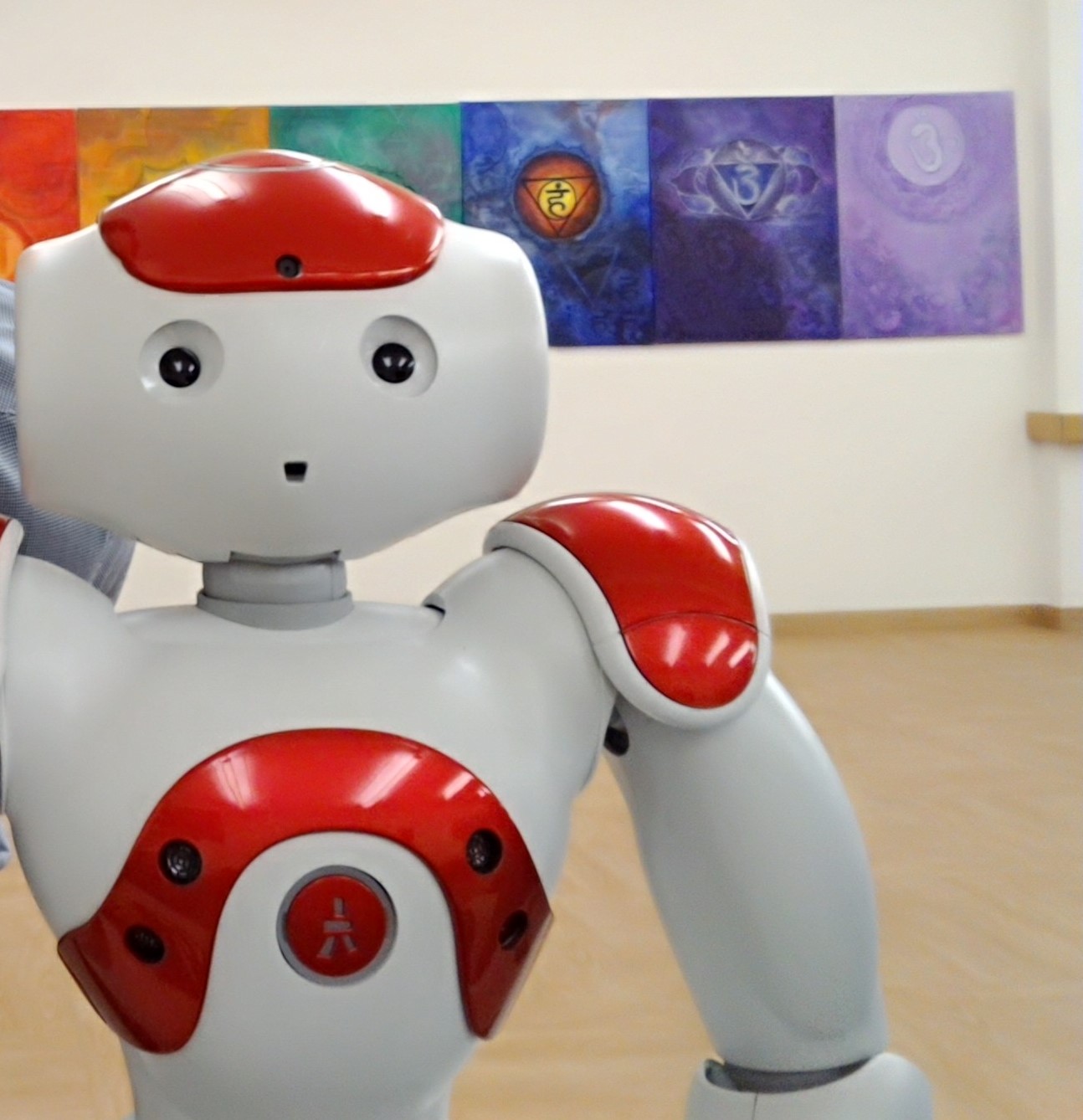
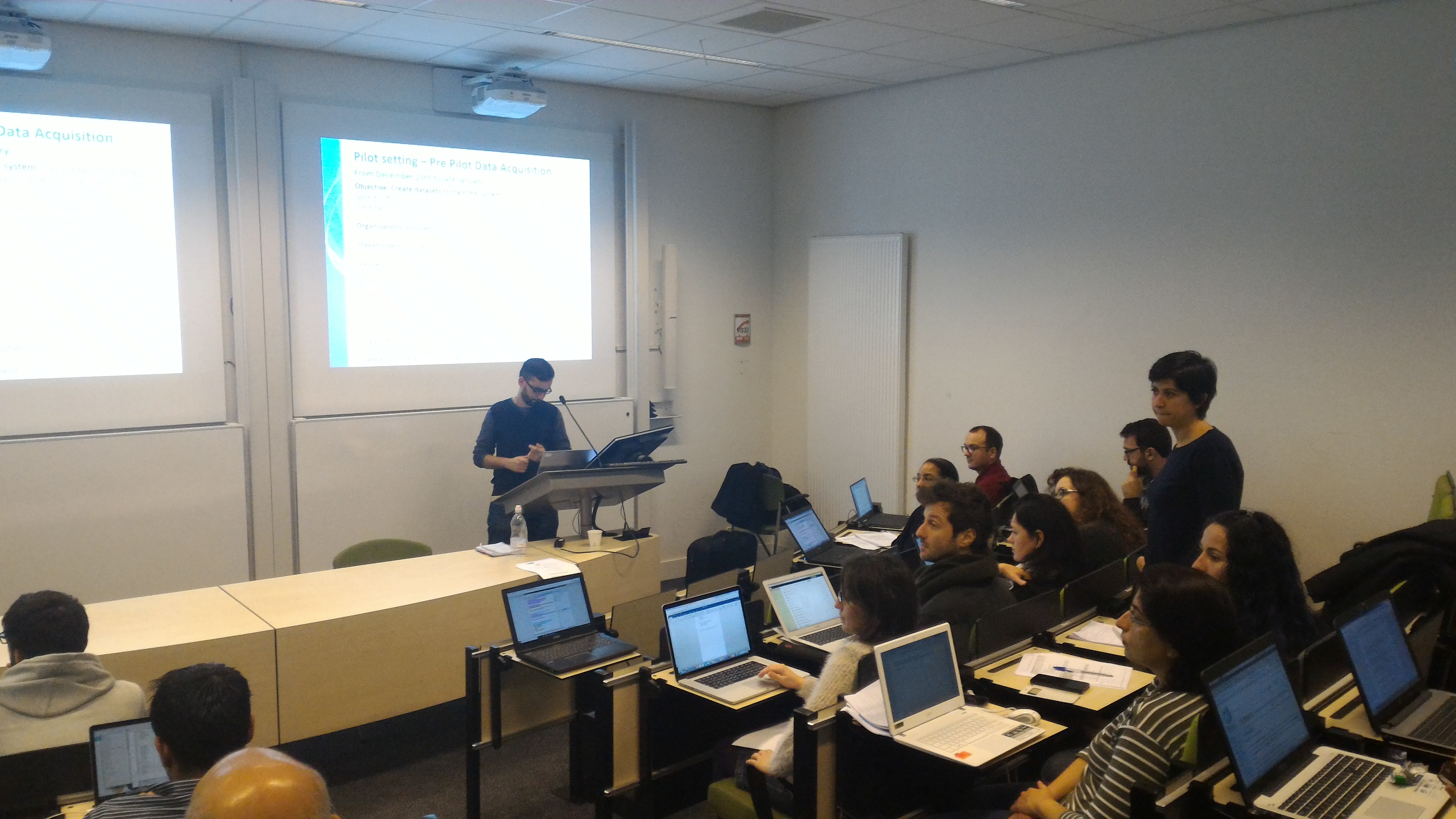
2nd MaTHiSiS Plenary Meeting (November 2016)
In 2016 (from 23 to 25 November), UM held the Plenary meeting of MaTHiSiS project. The meeting was attended by representatives of all the groups involved in the project, bringing together around 40 people.
During this meeting, important issues related to the first pilots of the project were discussed.
1st MaTHiSiS Technical Meeting (October 2016)
UM group attends the MaTHiSiS technical meeting held in Toulouse, France on Thursday 13th and Friday 14th of October 2016, hosted by Diginext.
During this meeting, the consortium has had the opportunity to progress on the project activities as well as to align the work developed by the different work packages with regards to the project last months.
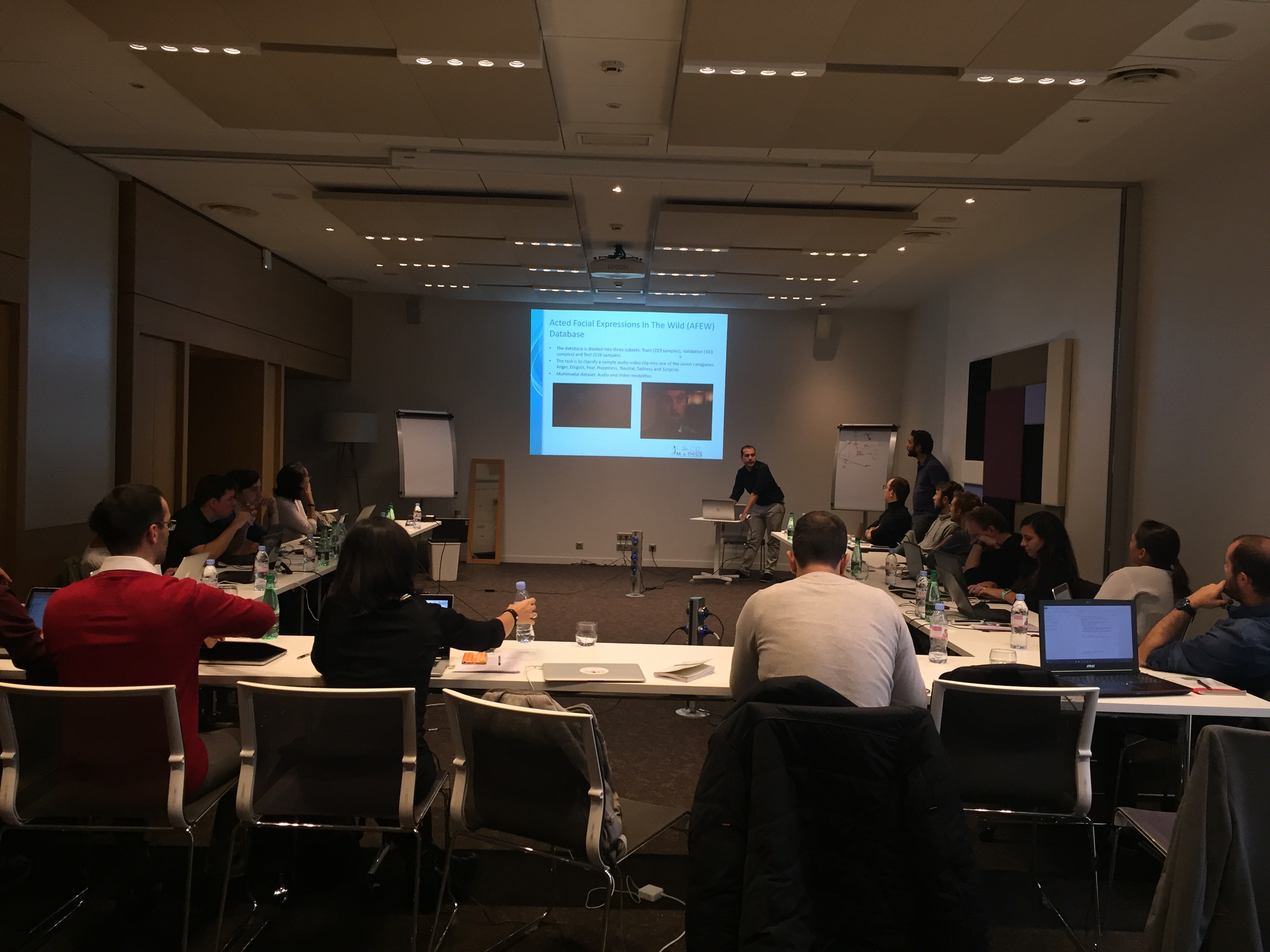
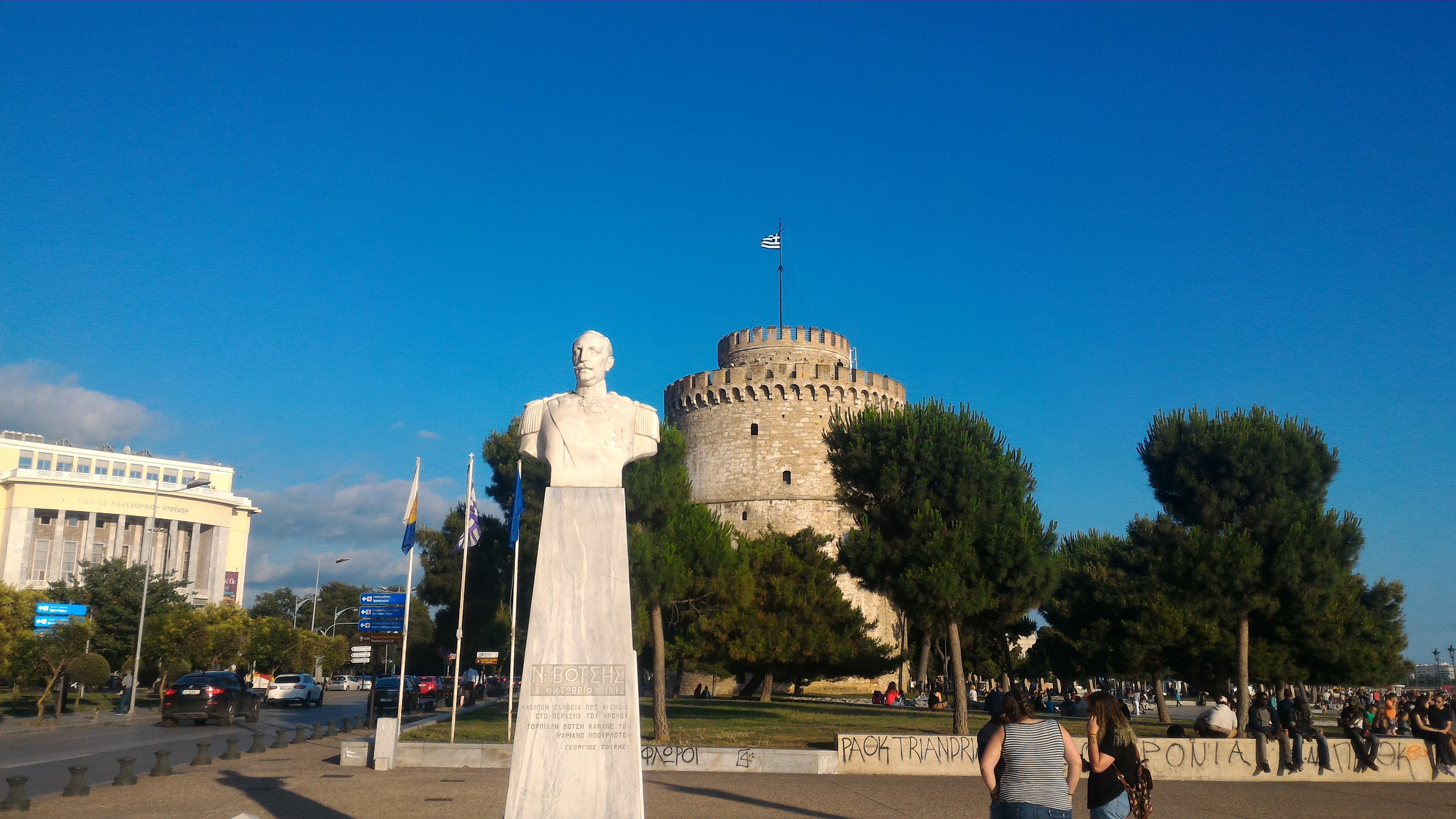
1st MaTHiSiS Plenary Meeting (June 2016)
The MaTHiSiS consortium will meet at CERTH (Centre for Research and Technology-Hellas) premises in Thessaloniki, Greece on 7th and 8th of June, 2016.
Project Biomot 2nd Annual Meeting (May 2015)
Biomot partners have met in Össur offices in Reykjavik, Iceland for the Second Annual Meeting (20-22 May).
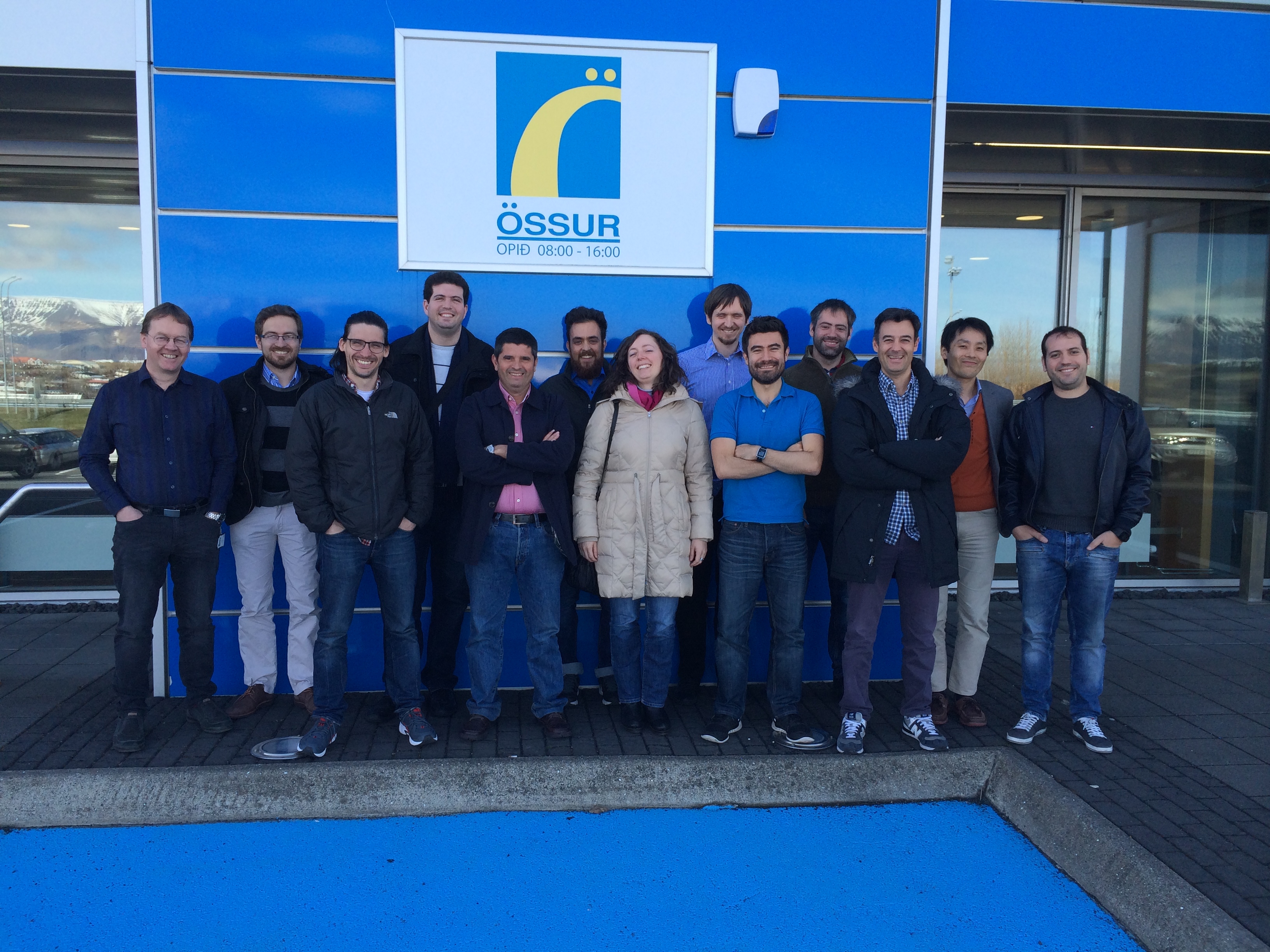
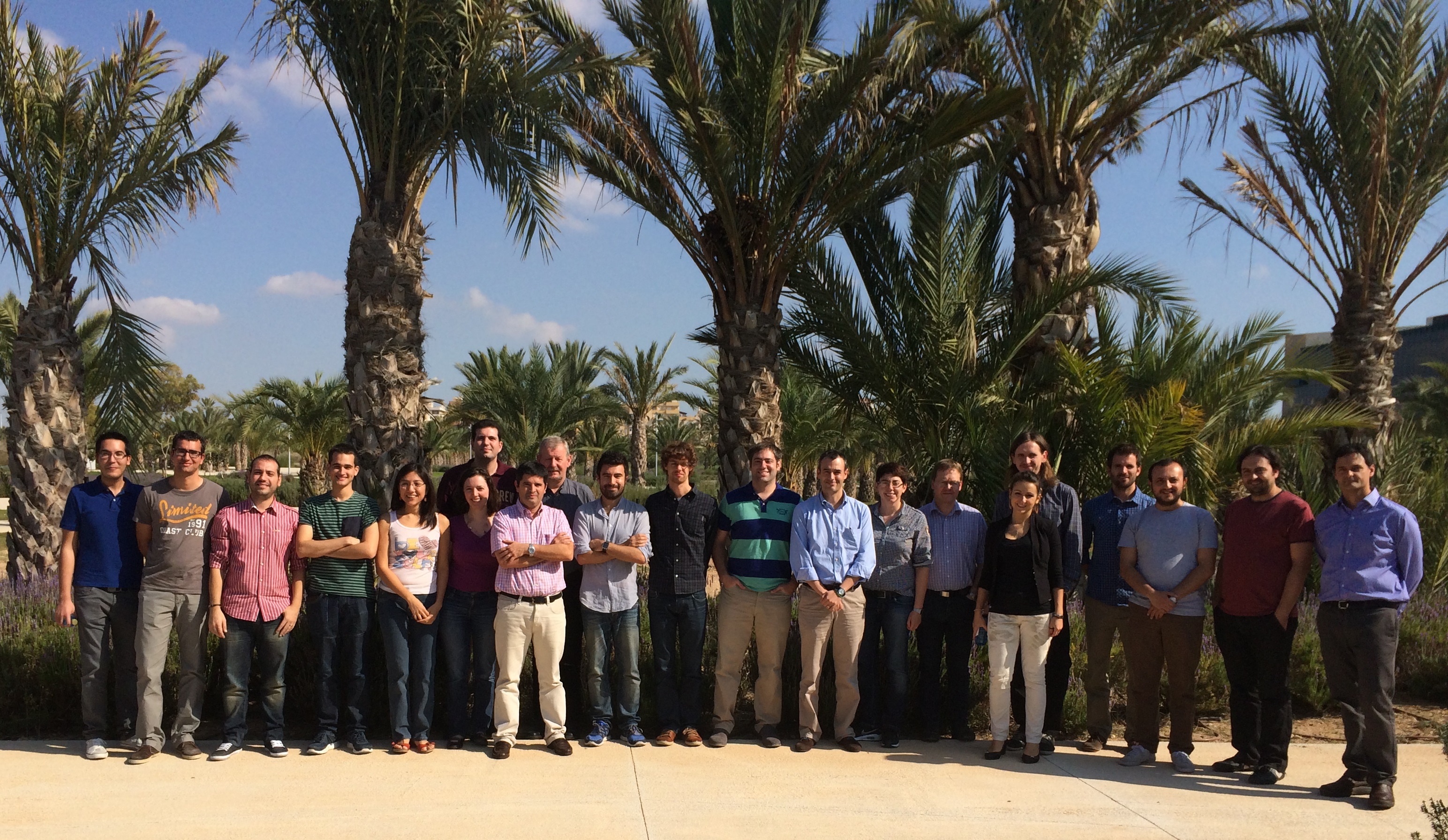
Biomot Consortium Meeting in Elche (October 2014)
Biomot Consortium Meeting took part in Elche, Spain during 28th and 29th of October in the Miguel Hernández University of Elche. Brain-Machine Interface Systems Lab held the meeting where people from CSIC (Consejo Superior de Investigaciones Científicas), Technaid S.L. and FUNHPAIIN (Fundación del Hospital Nacional de Parapléjicos para la Investigación y la Integración) from Spain, VUB (Vrije Universiteit Brussel) from Belgium, UNIPD (Università degli Studi di Padova) from Italy, Össur from Iceland and RIKEN from Japan have attended.
XXXV Jornadas de Automática (September 2014)
As in previous years, the research group BMI Systems Lab participates in Jornadas de Automática which is celebrated at the Polytechnic University of Valencia, Spain on September 3 to 5. This event is organized by different Spanish universities with the aim of bringing together teachers, researchers, students and practitioners to deal with themes related to teaching and research.
On this occasion, Enrique Hortal is making an introduction of his thesis work called Interfaces cerebrales no invasivas aplicados al control de un exoesqueleto para rehabilitación de miembro superior, as well as five other works by students of the Miguel Hernández University of Elche.
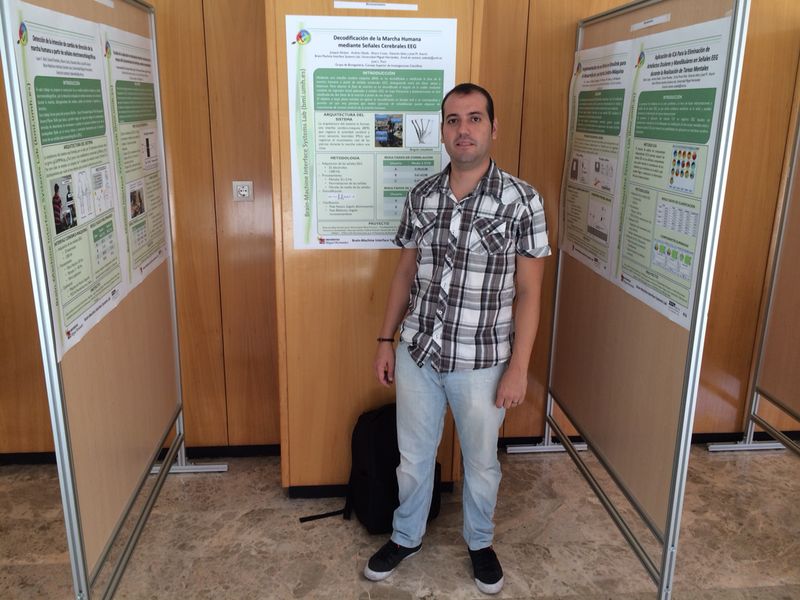
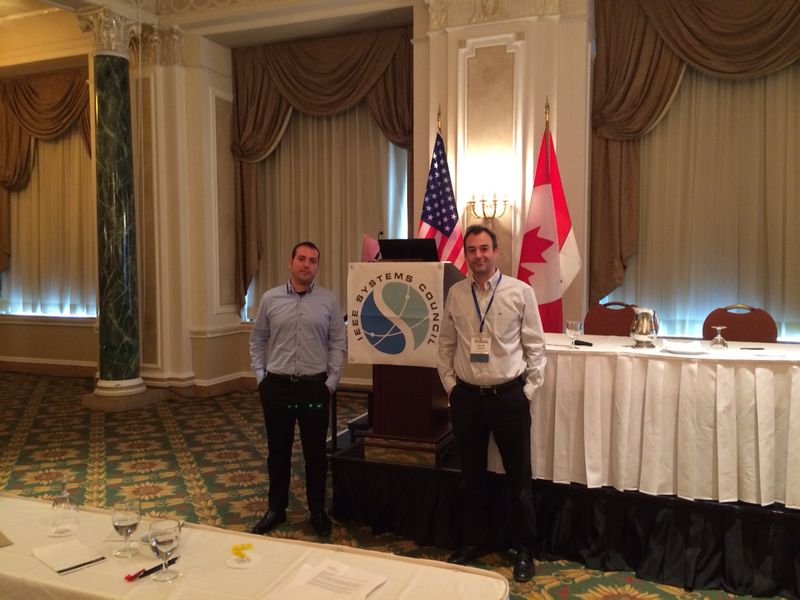
8th Annual IEEE International Systems Conference (March 2014)
Enrique Hortal and José María Azorín attend in 8th Annual IEEE International Systems Conference celebrated in Ottawa, Canada. This conference seeks to create an interactive forum for the advancement of the practice of systems engineering across the multiple disciplines and specialty areas associated with the engineering of complex systems.
BMI Systems Lab contributes with two presentations about new works related to the BioMot and Brain2Motion projects.
6th International IEEE EMBS Conference on Neural Engineering (November 2013)
Enrique Hortal presents the paper “Online classification of two mental tasks using a SVM-based BCI system” and “Passive robot assistance in arm movement decoding from EEG signals” in the 6th International IEEE EMBS Conference on Neural Engineering in San Diego, USA.
